Homesteading: Is It The Right Lifestyle For You?
This article can help you decide if the homesteading lifestyle is right for you.
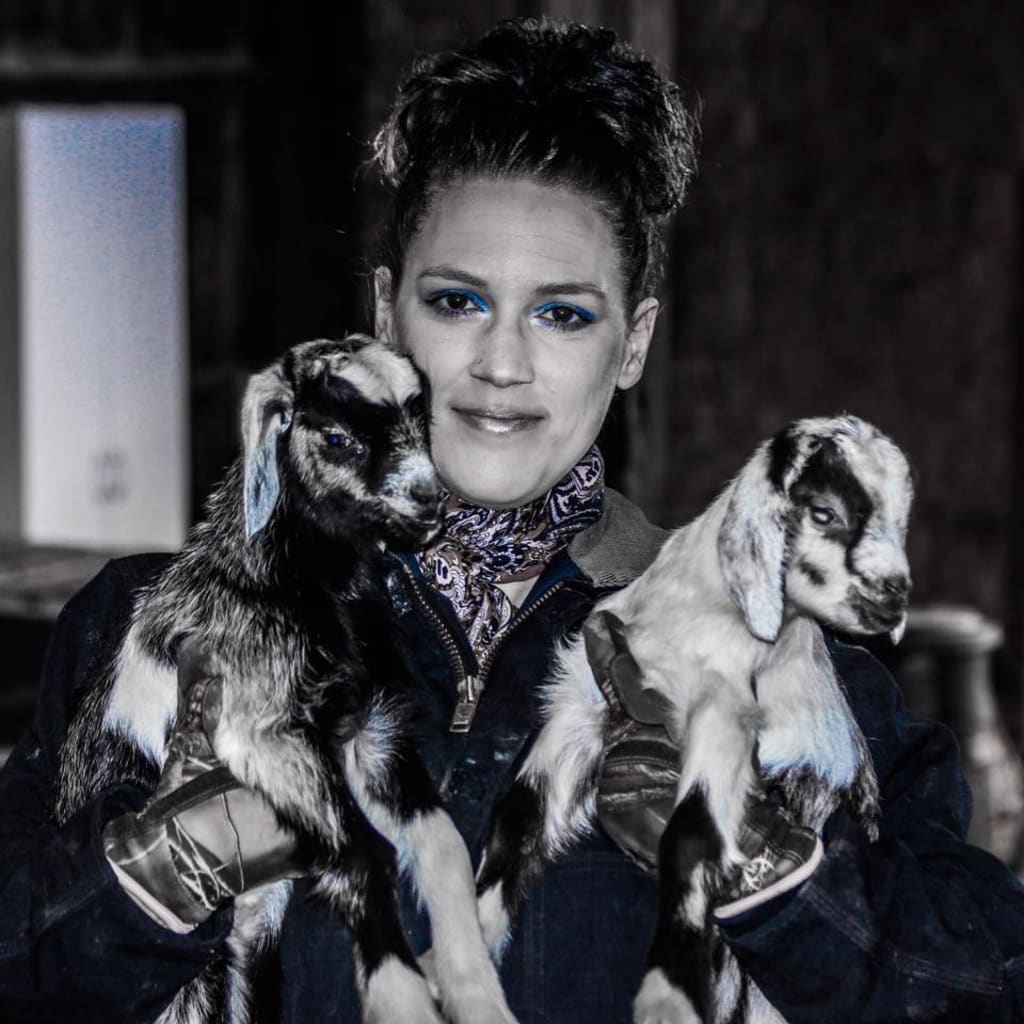
Homesteading, sunstainable living, and many other ways of life are becoming more and more popular now. Especially with the way things are going, being able to depend on yourself is a must!
That being said, how much goes into these lifestyles that a lot of people don't think of. Here are some tips or things that I think people should really think about before trying out the homesteading life.
How many acres can you afford?
That may sound stupid, but that plays a huge part of what kind of homestead you can run and how much you can do on it. How many things do you want to do? Do you want to run livestock? Do you want to have a huge garden? Do you want to farm it and make hay/corn/etc? Some of these things require a bit of acreage and good land on top of it. Unfortunately depending on the area you live in, the land can be super expensive, affordable, or dirt cheap. In the North Eastern part of Wyoming where we live, land is not cheap. It's stupid expensive, and the more acreage you get, the higher the price is. Even houses in town with 1 acre is around 400-500,000. To some of you, 1 acre might be a lot. To me it is nothing. I grew up on a 1,100 acre ranch north of town, and I am use to being around no neighbors, no where close to civilization. The farther away from town, the happier I am.
We currently live on 40 acres. We farm it and make hay, we have livestock, we love to garden, and we love to make our own stuff from the Goat Milk we collect from our Dairy Goats. We have 14 goats, 1 dog, 6 cats (1 house cat, 5 barn cats), 6 ducks, 1 rabbit, around 60-70 chickens, and 1 horse. This information is leading to my next question.
Do you plan on having livestock?
Obviously the horse, rabbit, and cats don't make us any money. The horse is my retired ranch horse, and the cats are for pets and to take care of the mice around the yard and in the barn. The rabbit (Blaine) is a pet. He is a retired show rabbit that a friend gave me, so he can live out the rest of his life in our barn.
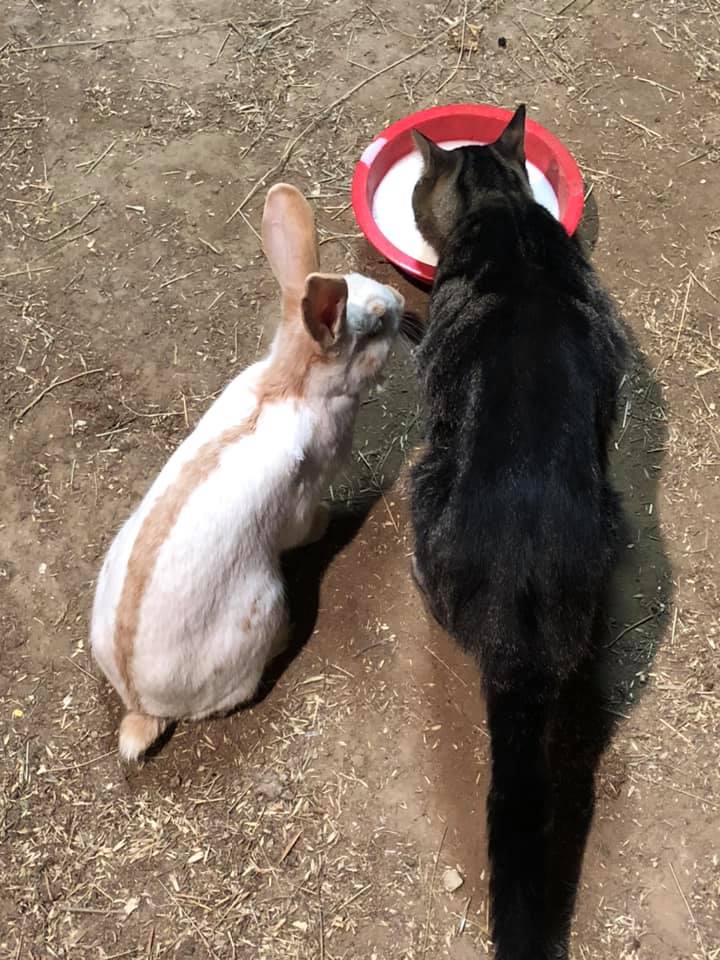
The dog is specifically for the goats, he is not a pet. He was purchased to protect our goats. The goats have many different ways to make money for us. In Wyoming it is legal to sell Raw Milk and Raw Milk Products. So I sell our milk to the public for consumption, and they can choose how they want to use it. I also use our goat milk to make Soap (Bars and Liquid), lotion, & body butter. I sell these on Etsy and we have a store in town that you rent space with and you can sell whatever you want there for a monthly rental fee. We also have a Boer buck (Boer is a breed of meat goat), and he will be crossed on all of our does (female goats). Then when the kids (baby goats) are born we keep them until they are around 68-80lbs and we haul them down to a livestock market to be sold. They are then sold and go to whomever buys them, and the buyer decides what to do with them from there. The goats can be very profitable and I absolutely love having them.
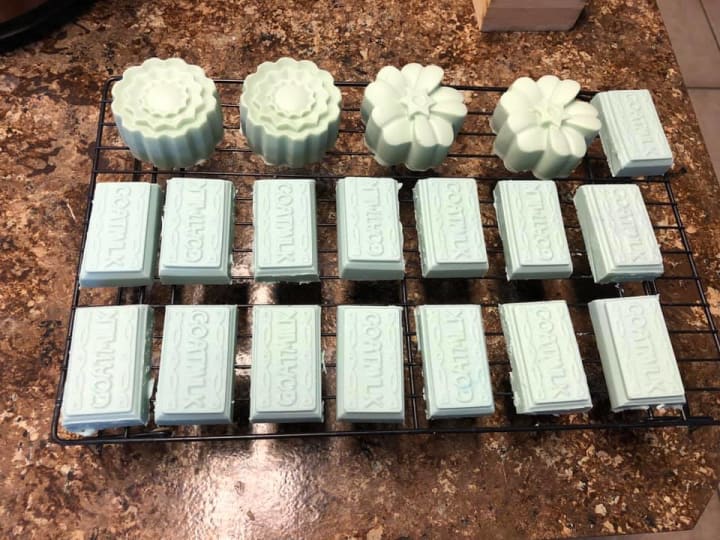
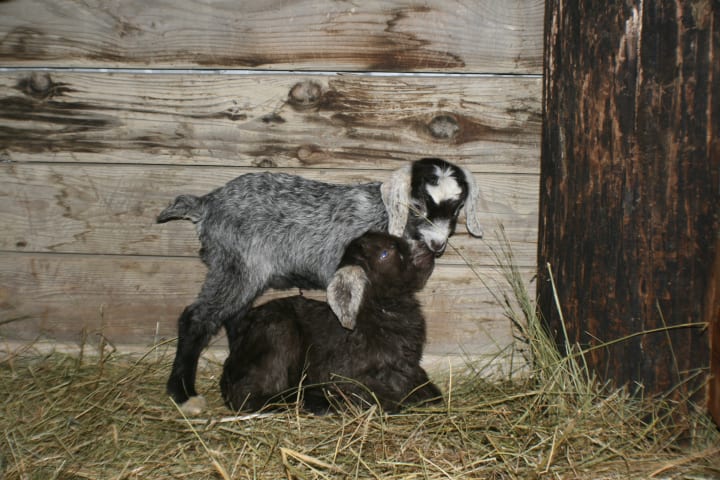
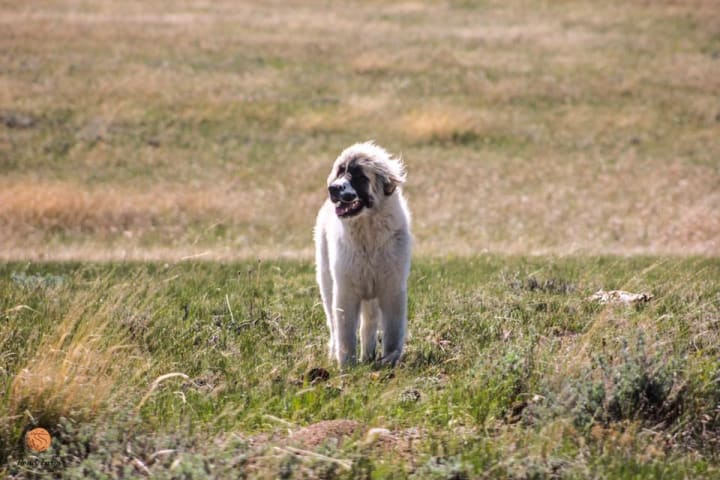
The ducks and chickens are not as profitable for us. We sell the eggs we get from them so people can eat them. Most people around here prefer farm fresh eggs vs store bought. I do too, for many reasons, but that's a story for another day and another article! I sell mine for a little cheaper than other people do, but it saves me in the long run, because people would rather buy them a little cheaper for the same great farm fresh taste. Duck eggs are a little harder to sell than chicken eggs, but once you find a buyer it is usually easy to keep that same buyer. Some people are allergic to chicken eggs, but they can eat duck eggs. So they will buy them instead so they can still have eggs and use them in recipes for cooking, baking, etc. The one thing to remember when getting into chickens: Yes, they are cute when they're babies. It doesn't last very long. They are fully feathered around 7-8 weeks old. Between 2-5 weeks, we call that the ugly teenage stage. They are the ugliest things you will ever see at that stage. They look very nice after they are fully feathered. That being said, you won't get eggs right away. People don't realize that you don't get eggs very quickly with chickens. Most start laying when they are around 6 months old. Some can start around 5 months, if you're lucky. Some can wait to lay until they are 8-10 months old. A lot of this depends on what breeds you get. The production breeds tend to lay earlier and more often (Rhode Island Reds, Leghorns, Orpingtons, Plymoth Rocks). Fancier breeds usually lay later, and not as often (Maran, Easter Eggers, Olive Eggers). Another thing that people don't realize: EGGS ARE NOT ONLY WHITE. Eggs come in array of colors. White, Brown, Chocolate Brown, Brown with Dark Speckles, Olive, Green, Spearmint, Blue, Blue-Green, Cream, Pink. It all depends on the breed. I am an egg enthusiast, so I try to keep my egg basket as colorful as possible. Chocolate Brown and Olive Eggs being my favorite colors.
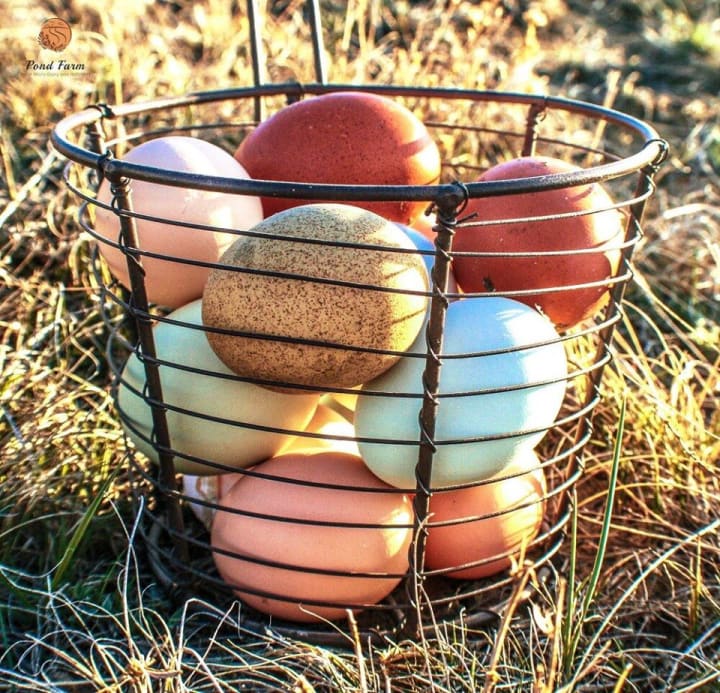
As well as chickens and ducks, we usually have quail. I have had both Tuxedo Quail and Button Quail. If you are interested in having quail, check with your local Game & Fish Department first, there may be laws with owning them. In Wyoming you have to have a Chapter 10 permit to own quail. I had a permit to own both types of quail. The Tuxedo Quail lay beautiful eggs that we used for pickling. My new permit also permits us to lay non-viable eggs. Meaning the eggs are only good for human consumption, not fertile for hatching. The Button Quail were not a real great breed to have, but I loved having them anyway. Their eggs were absolutely not practical, they are the tiniest things you've ever seen. But they laid an array of egg colors, and laid very well. In my opinion, you have a much better turn around with quail than chickens. They are a different type of poultry, and they start laying eggs much sooner than chickens. They start laying eggs when they are 8 weeks old. Unfortunately since they do start laying sooner, their lifespan is significantly less than chickens (About 18 months is considered ancient for quail).
Can you afford having the livestock around?
It doesn't matter if your animals are making your place money or not, you still have to feed them. The biggets mistake people tend to make is going out and buying animals without thinking of all of the extra cost they are going to incur. All of the animals have the risk of needing a trip to the vet. Do you have a vet in your area that you can trust? Do you know how much these vet visits are going to cost you? Dogs, cats, horses, and the goats need yearly shots and worming. If you can't give shots yourself and need to go to the vet to do so, it can get expensive. If you are worried about your goats being pregnant, ultrasounds aren't cheap. If you want them tested to make sure they are free of disease, it isn't cheap to get everyone tested. You can draw your own blood (you have to draw goats blood from their jugular, which scares me to death!), or pay a vet 12.00 a head to do it. For some it isn't a big deal, but when you have a lot of goats, it could rack up a huge bill fast. If you animals get hurt, can you fix it or do they need immediate care? I took vet classes and know a vet personally that helps me out over the phone all of the time. But there are only so many things I can do before I have to throw in the towl and get professional help. You have to think of the animals. They can't help themselves, they depend on us humans just like a small child would.
Feeding is another huge expense people don't think of. Yes cows, goats, horses, sheep, etc. eat grass. The grass you have only goes so far. Especially if you're in a drought and have no rain. No rain means no grass. Therefore, you're going to be buying hay. Also in winter, everything is going to need hay, unless you're in the southern part of the states, I am not sure how winter season is down there. Up north, tons of snow, and no grass showing. I am very lucky and all of my cows are on my dad's ranch north of town. He also helps us out with hay for our goats. If you have milk goats like I do, these goats do need some help with some grain for their milk production. This does involve quite a bit of grain. Which isn't cheap, unless you can find a mix you like, and you can get it done at a local grain mill. It can save you hundreds of dollars! Chickens require feed as well, we get ours custom made at a local mill, which saves us hundreds of dollars on feed!
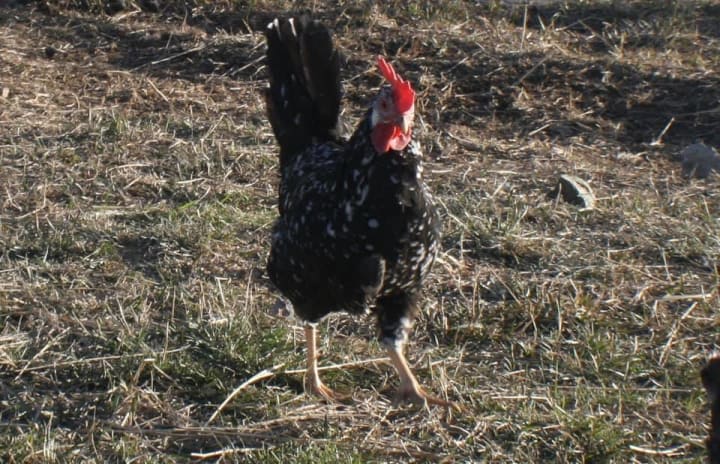
Where do you want to live?
This is one of the biggest things I can honestly think of. Where do you really want to live? Do you like living near a city or far away. As I said in the beginning of the article, I hate being anywhere near town. I like being "out in the boonies". Farther away from town the better. Some people might want to be closer to town, or right in town. Being right in town is most likely going to be a very small amount of acreage, and have issues with any kind of livestocking being there. Depending on your city's limiation on owning livestock & animals in city limits.
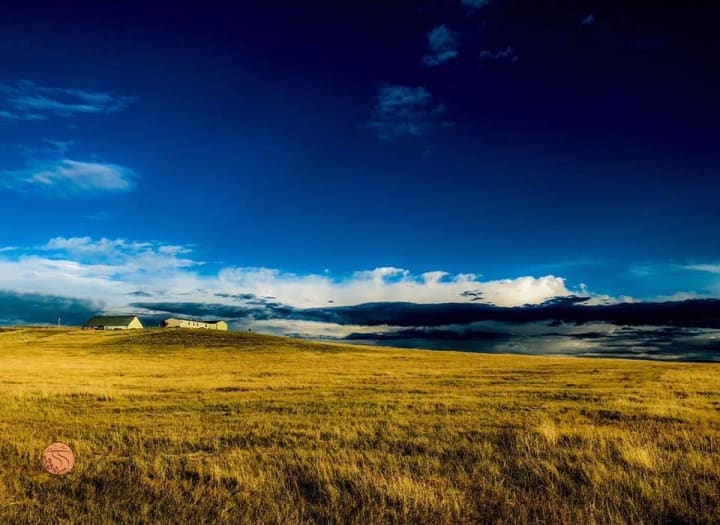
Those are just a few small things to think about before deciding you want to live this way. I love it and I wouldn't change it for the world. I love my animals and love taking care of them morning and night. They make my life worth living! If you want a little taste of the homesteading life, feel free to check out our Facebook page: www.facebook.com/PondFarmWY
I hope you enjoyed this article and if you have any questions you are more than welcome to message us on Instagram or Facebook. I love sharing my knowledge with people who want to learn!
Thanks for reading!
About the Creator
Nicole McClure
I'm a mom, fiancé, CEO, and many others things here on our little farm.
We have goats, chickens, ducks, cats, 1 Dalmatian, and a Great Pyrenees.
Follow us through our amazing journey, I know you'll enoy it!






Comments
There are no comments for this story
Be the first to respond and start the conversation.